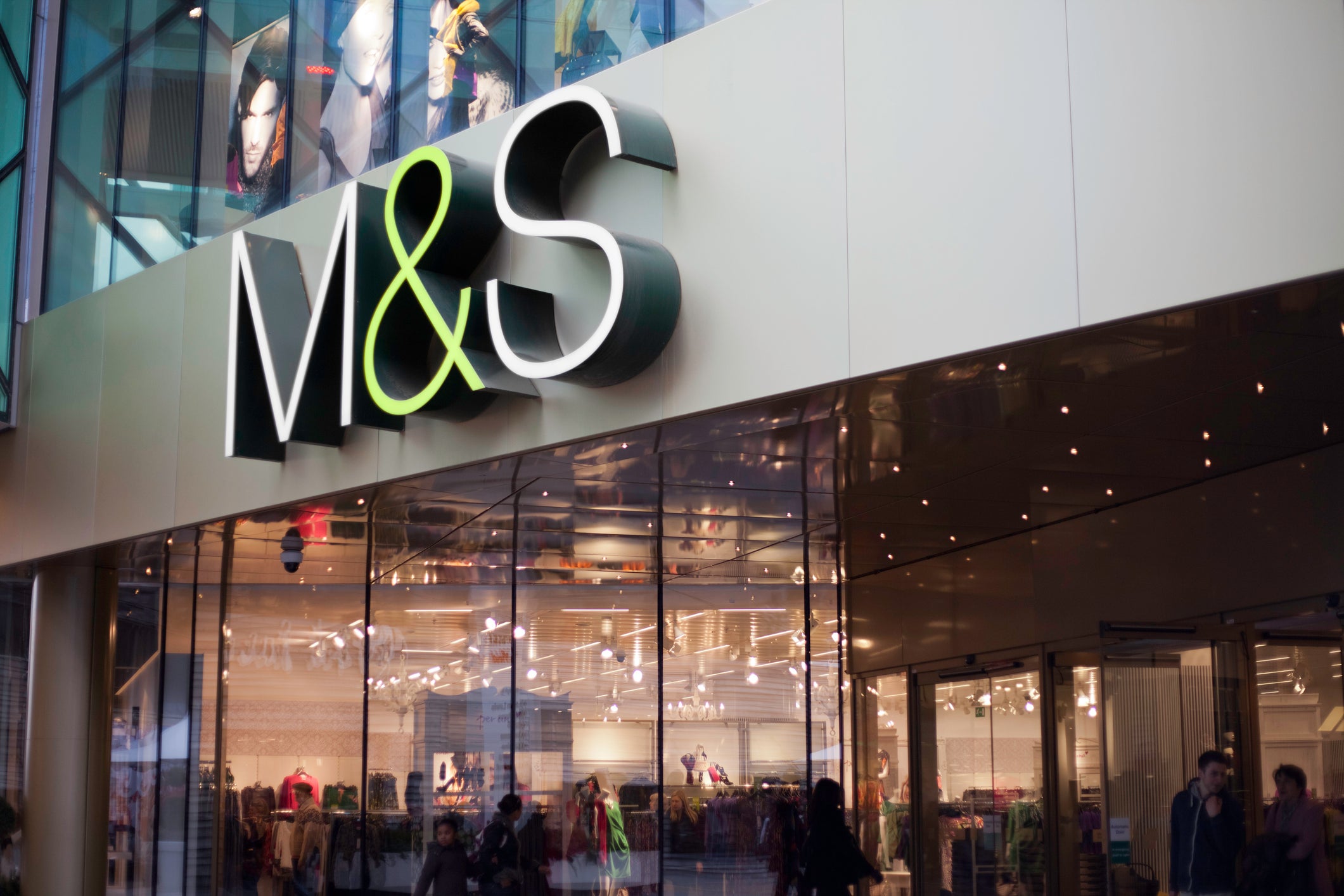M&S rallies after dismal results, but boss Steve Rowe still has something to prove
It’s possible to see better times ahead for the beleaguered retailer but its bosses have to show they can deliver on Rowe’s plans. They also need to look after long-suffering staff, says James Moore


There is a glass-half-full story as regards M&S and it appears there’s finally an appetite for it among the beleaguered retailer’s punchdrunk investors.
The shares were markedly ahead (albeit from a very low level) on the back of the full year results, despite the group announcing that pre-tax profits for the year to 31 March limped in at £67.2m, against £84.2m last time, with no dividend in sight. It’s a dismal looking number, the lowest in decades.
But the shares ended yesterday’s trading session up 10.77 per cent, albeit from a very low base. So where were the green shoots investors saw?
Well, there was a big sigh of relief from the company announcing that its cashflow was £150m “better than scenario” in the wake of Covid-19. Big news when there are real questions about the future of many high street retailers.
CEO Steve Rowe’s plans to accelerate the transformation of the business and slash costs by half a billion pounds also found favour.
This means playing hardball with landlords, and closing stores where they won’t play. The M&S shipping forecasts should be warning of storms ahead.
But the crisis has probably just served to bring forward what was going to happen anyway. The future was always going to be one with far fewer M&S stores on Britain’s high streets.
“The way our people have rallied to support our customers and communities has been awe-inspiring,” said Rowe.
Pretty words, but his transformation plan means some of the people he lauded will soon be pitched into one of the chilliest jobs markets seen since the early 1980s.
M&S is a business that’s been badly let down by poor leadership. It owes it to the people who have kept the show on the road through some grim years to handle the issue with sensitivity.
Those that survive the coming cull will be part of a business with the potential to succeed if Rowe and his fellow managers can play against type.
Poor execution has been the bane of this business, online in particular.
It bears repeating that M&S and Next were once rivals. There are numerous reasons why the latter has disappeared over the horizon. One is the failure of M&S bosses to get to grips with a channel some of them seem to have thought of as “that interwebby thing we don’t need to worry too much about”.
Rowe has already got one over on his predecessors. He has a plan, and he’s proved willing to take a big risk to deliver on it.
That came via the £750m purchase of 50 per cent of Ocado Retail, which is the bit customers interact with when they do their shopping with the online grocer as opposed to Ocado’s tech operation.
Customers won’t see M&S product appearing on Ocado’s website until its contract with Waitrose ends this autumn. But there will be a “welcome M&S” marketing campaign before the handover, and we’re told things are going smoothly.
It’s not all easygoing. The coronavirus driven loss of city centre footfall has hurt the bricks and mortar M&S Food outlets.
But food now accounts for just over half of M&S’s earnings before one-offs (there were a lot of those, including a £145m write-down on a mountain of unsold clothes, much of which is being hibernated but is unlikely to be flogged at full price even next season) and that’s where the action is.
At the time of the Ocado deal there were a number of criticisms levied. Some said the chunky price was too high, some complained about the transformation of M&S from an income stock, with a generous dividend, into a growth play. I wondered whether Rowe was right to bet on a brutally competitive low margin sector.
Today? The deal looks a lot better. A 50 per cent share in a fast-growing online grocer counts as a diamond in the rough. A shiny one.
If the company can weather the current storm, and somehow sort its clothing and home business, the future could be bright. That “if” has, however, been with M&S for years.
Rowe’s earned his spurs as a risk-taking deal-maker and there is a world in which those who jumped in to buy M&S shares are paid handsomely for doing so. But let’s be clear: he still has something to prove.
Join our commenting forum
Join thought-provoking conversations, follow other Independent readers and see their replies
Comments